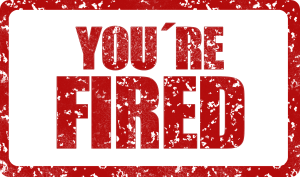by Renee Mielnicki, Esquire

So what should we put in this letter? The answer to that is, not much. Remember there is a good chance that this type of letter is going to be taken to an attorney, so we don’t want to put anything in there that provides ammunition for a lawsuit, including setting forth something that is untrue or that will be contradicted by someone or something else. Once it’s in writing, it can become an exhibit in a legal proceeding, so less is always better.
It should always be very clear to an employee why they are being fired. Your reason should be clear when you inform them verbally as well as in the letter you provide to them documenting what you said verbally. Allowing an employee to walk away wondering what they did to lose their job is almost always a trigger for a lawsuit. They often speculate it’s for an illegal reason and then it’s hard for the employer to show it was for a legitimate, business-related reason if they were not clear in their words and the letter.
Here is what I include in any termination letter that I provide to an employee:
- The effective date of the termination. This should be the same day you give them the news and the date of the letter.
- A formal reason why. This should be because they have violated a policy, an expected standard of conduct or have repeated poor performance. For instance, if an employee fails a drug test and the employer wants to terminate the employee for this reason, the reason outlined in the letter would be, “you have violated our drug and alcohol testing policy by testing positive for drugs” and then list the specific date.
- Tell them the date of their last paycheck, which should either be the next pay period after their termination date or sooner if your state law so requires.
- If they are on the company’s group health plan, tell them a separate letter regarding their rights under COBRA will follow.
And that’s it. It’s that easy? Your termination letter should not say any more than this. I have seen too many people write termination letters with lots of details to the point its two pages long. Drafting a termination letter that includes more than what I describe above is pretty risky because now you are stuck with it if a dispute occurs which means what you said in there better be right. I always counsel my clients that the details of the termination should be in the personnel file, rather that the letter. For instance, the reasons we asked for a drug test are set forth in a memo from the supervisor in the employee’s file along with the positive drug test report. Or, the performance improvement plan given to the employee months ago telling him how he must improve as well as the documentation showing he didn’t meet the goals for improvement go into his file. These details belong only to the employer unless and until a lawsuit happens. In that case, they then have to be provided to the other side during litigation. Remember, you don’t want to fuel a lawsuit unnecessarily by giving too many details in the letter. It’s better to be simple and clear because less is really more with these letters.
If you are an employer with questions about terminations, please contact our HR professionals by calling 724-864-8745.
Disclaimer: The information provided on this web site is for informational purposes only and not for the purpose of providing legal advice. Use of and access to this web site does not create an attorney-client relationship between East Coast Risk Management or our employment attorney and the user or browser.

